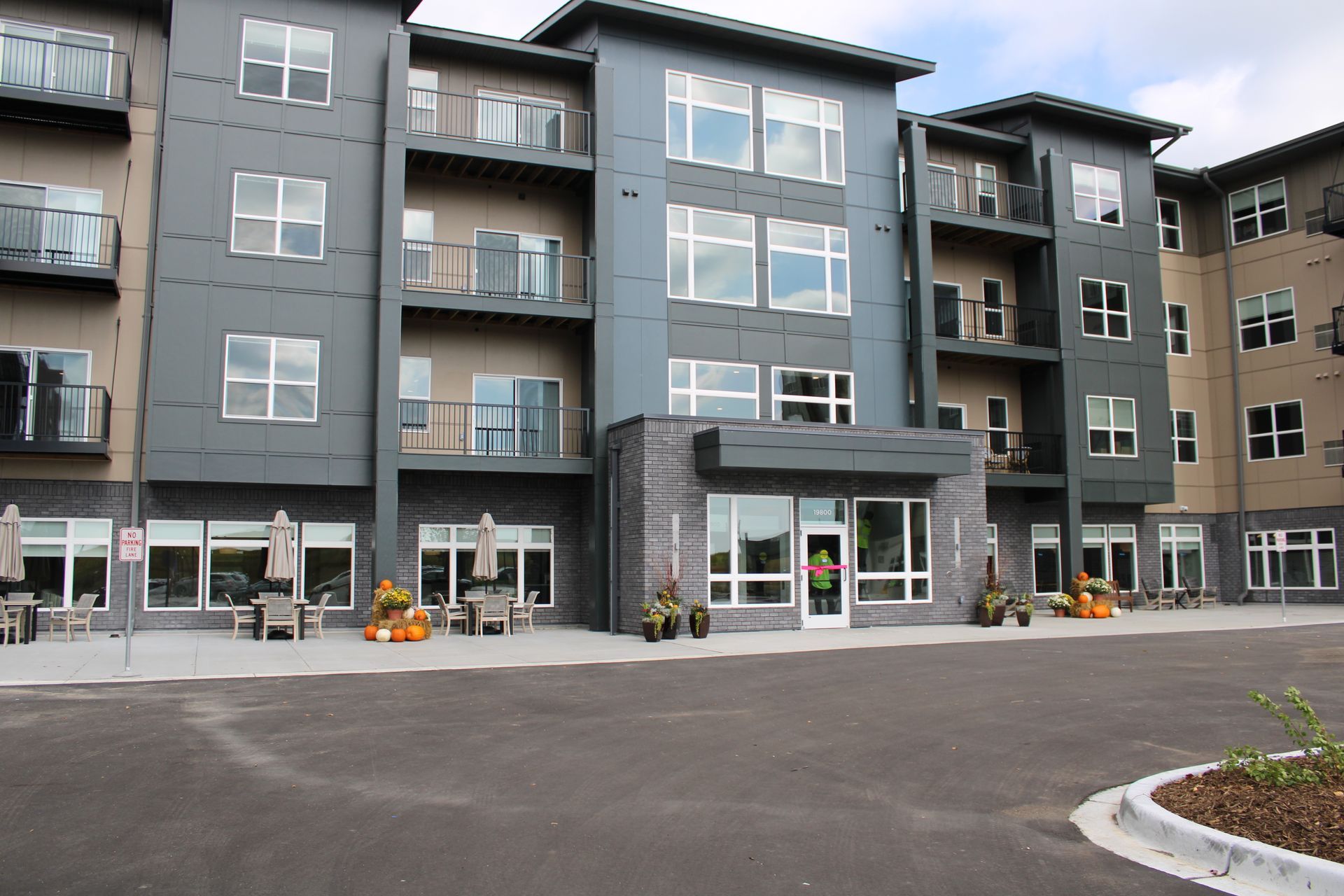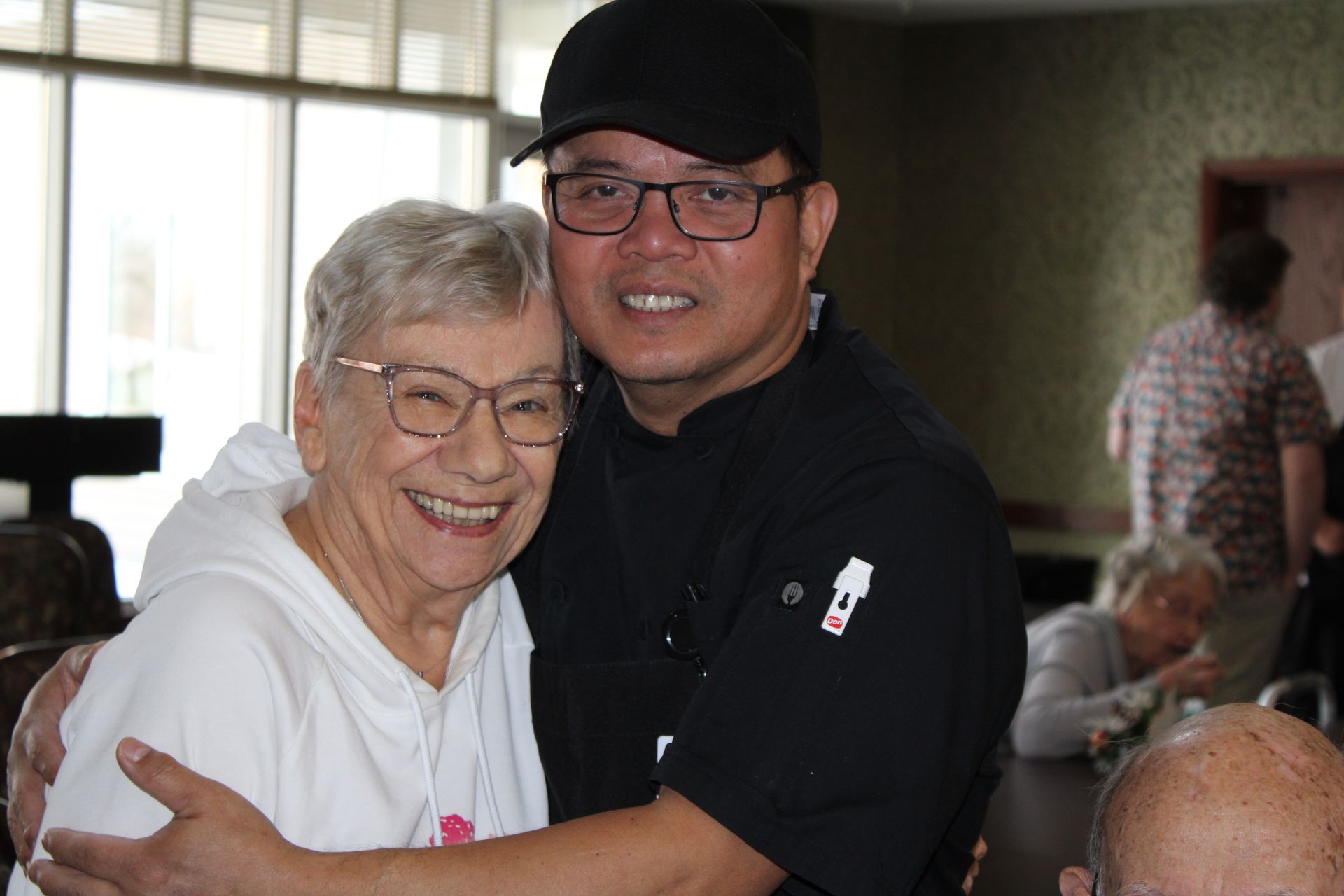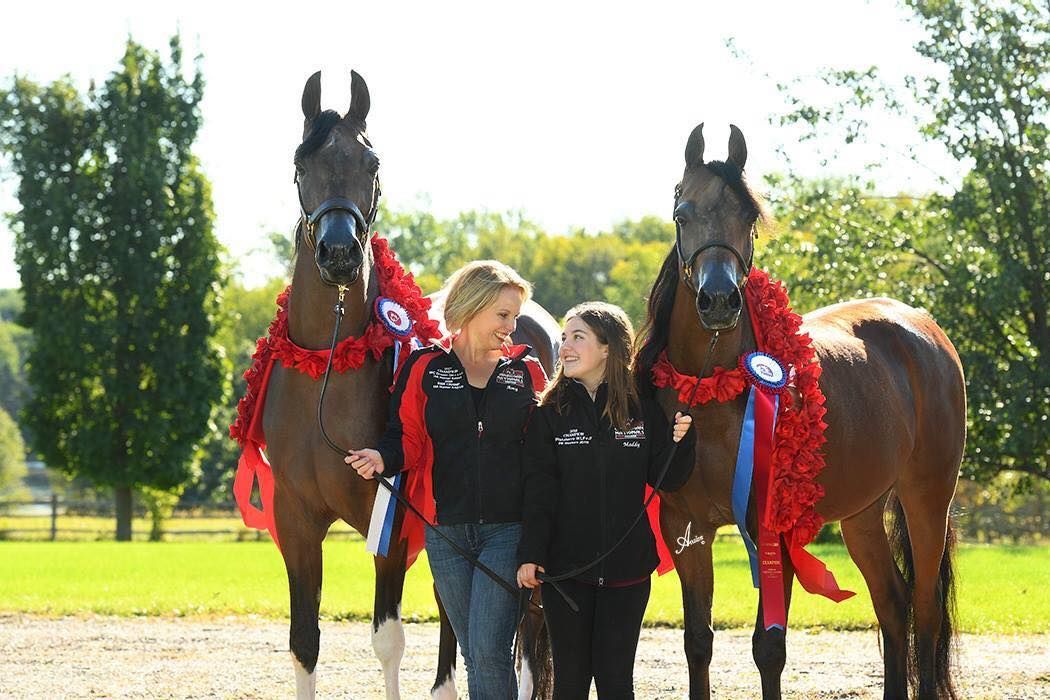
For the Love of Arabians — An Occasional Series on Saint Therese Employees
Amy Taylor-Greengard, the executive vice president of Rehab for
Saint Therese, fell in love with horses at a very young age. Her parents farmed and she remembers pleading for a pony from Santa when she was five. She was rewarded with Bingo, a Shetland pony. At seven she graduated to a black quarter horse mare affectionately called Black Beauty.
She received her first Arabian horse at age 11, named Aran. That was when Amy became an ardent lover of the breed, with historic roots on the Arabian Peninsula and a distinctive head shape and high tail carriage, is one of the most easily recognizable horse breeds in the world. It is also one of the oldest modern breeds.
“I love Arabians because they’re beautiful, majestic, bigger than life and personable,” said Amy. “They are very people-oriented, curious and they show affection.”
Amy had an Arabian trainer and began showing her horse at 4H events as a kid. The trainers would let her help out in the barns; she’d brush the horses and once in a while they’d let her go to upper-level rated horse shows. “Watching was so neat. It turned into a full-blown passion.”
But that passion had to be put on hold while Amy attended Marquette University in Milwaukee. Seven years later, and within two weeks of graduating with a master’s in physical therapy, she bought a new horse.
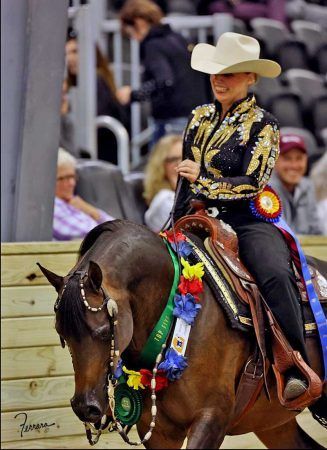
Amy showing one of her Arabians
The ever-driven Amy then led a somewhat dual life. She started a successful career in rehabilitation services and competed on weekends on the
Arabian Horse Association Horse Show Circuit.
In her 30’s, Amy reached a skill level where she was showing at regional competitions and in her 40’s, she progressed to showing at the U.S. Arabian National Horse Show. Over the past ten years, she has consistently been in the top ten equestrians in the U.S. for her age group and discipline. (The rider and her horse are judged by the overall quality of movement, manners and execution of the gaits asked for – walk, trot, canter. And the quality of the transition, movement, and consistency.) She was thrilled when she won her first national championship in 2017.
“It was my dream,” said Amy.
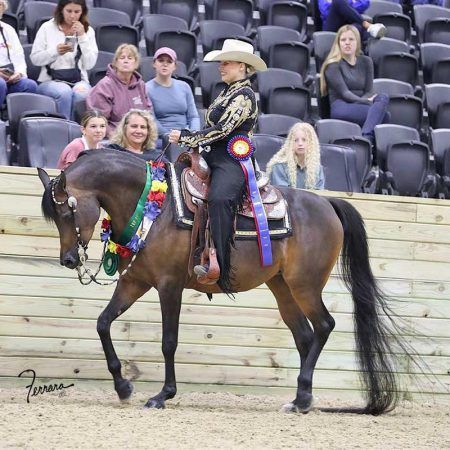
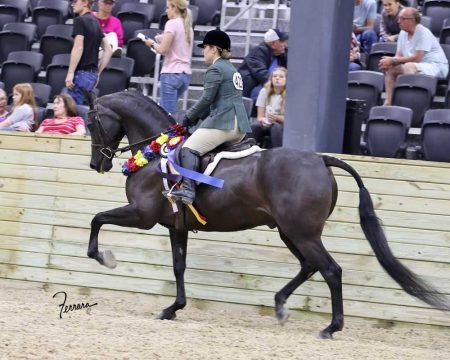
Maddy showing her horse
And now that dream has become her daughter’s. Eighteen-year-old Maddy lives and breathes horses. She also started riding when she was five and quickly moved up the show ranks to where she was competing at the regional and national level by the time she was 12. She now has three national championships and has been nominated as the top western pleasure youth rider of the year twice. This month, Maddy is competing at the U.S. Arabian Youth Nationals Show in Oklahoma City, July 18-27. This is her last year competing at youth nationals as she will be “aging out” and moving into the adult amateur division next year.
Said Amy, “My daughter is an amazing rider; she is much better than I am. I love watching her show.”
In addition to competing, Maddy gives riding lessons to beginning riders and kids with disabilities at Regent Arabians in Rogers and she cleans stalls and takes care of horses at Eleanors Arabian Farm, also in Rogers.
In 2020, not satisfied to just show horses, Amy and Maddy founded M&A Arabians (Maddy and Amy) with the goal to breed Arabian Show horses. They currently have three broodmares with one foal they bred getting ready to start her show training, and the next foal is due March 2025.
Not forgetting her day job…Amy has carved out a distinctive niche at Saint Therese. She joined the organization in 2004 and for the past 20 years has grown the New Hope Rehab Department from seven staff into Ascend Rehabilitation, a robust rehab and wellness company that consists of 85 staff who served 855 clients last month in Saint Therese communities, as well as other non-owned communities in the metro.
Just as she prides herself on showing horses, she also is proud of the work the Ascend team does day in and day out.
Tireless as she is, when Amy’s not managing all operational aspects of Ascend Rehab, she’s likely spending time with her horses on her seven-acre hobby farm in Rogers or showing horses at competitions throughout the Midwest.
And…in the wee hours of the morning, while many of us are still sleeping, hitting the snooze button or having our first cup of coffee, think of Amy, because she’s probably in her barn, mucking out the horse stalls….and loving every minute of it.
About
At Saint Therese, our heartfelt purpose since 1968 has been a people first approach to living well by providing senior care and services where every life we touch feels welcomed, respected, and heard. We achieve this by doing ordinary things with extraordinary love every single day. Contact us to learn more.
